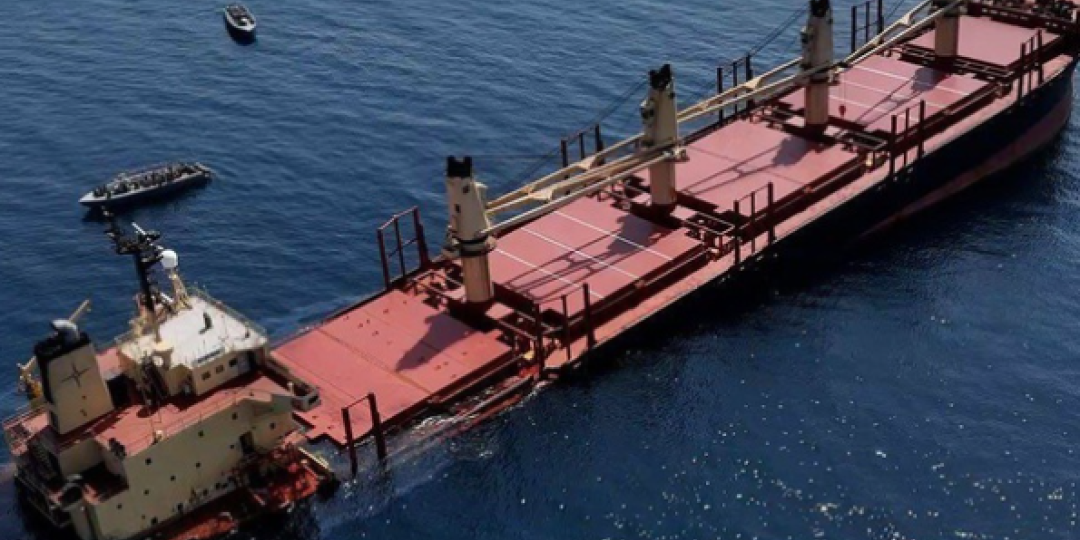Red dots dominate a data map showing the two dozen-plus commercial vessels that have been fired upon with missiles and heavy-calibre arms since Iran-backed Houthi rebels started their campaign of maritime trade disruption in the Red Sea and Gulf of Aden.
But over the weekend a black dot was added to the militia’s tally of vessels when a UK-owned bulk cargo vessel sank after taking on too much water.
The Belize-flagged Rubymar, laden with chemical fertiliser, was initially struck on February 18, causing it to drift northward from the Bab al-Mandab Strait, the narrow choke point around which the Houthis have focused their attacks.
It is the first vessel to be completely destroyed since the Houthis started their violent campaign by hijacking an autoliner, the Galaxy Leader, on November 19.
Fears of an environmental disaster started spreading after the Rubymar began to leak oil, and authorities have been warned that the 41 000 tonnes of fertiliser on board the vessel could have a long-lasting effect on the Red Sea’s sensitive ecology.
More than half the fertiliser consists of ammonium phosphate sulphate which, according to the US military’s Central Command, presents an environmental risk.
Al Jazeera reported that Mohammed Ali al-Houthi, the head of the Houthi supreme revolutionary committee, said that the group held UK Prime Minister Rishi Sunak and his government responsible for the vessel sinking because they support the “genocide” and Israel’s “siege” in Gaza.













